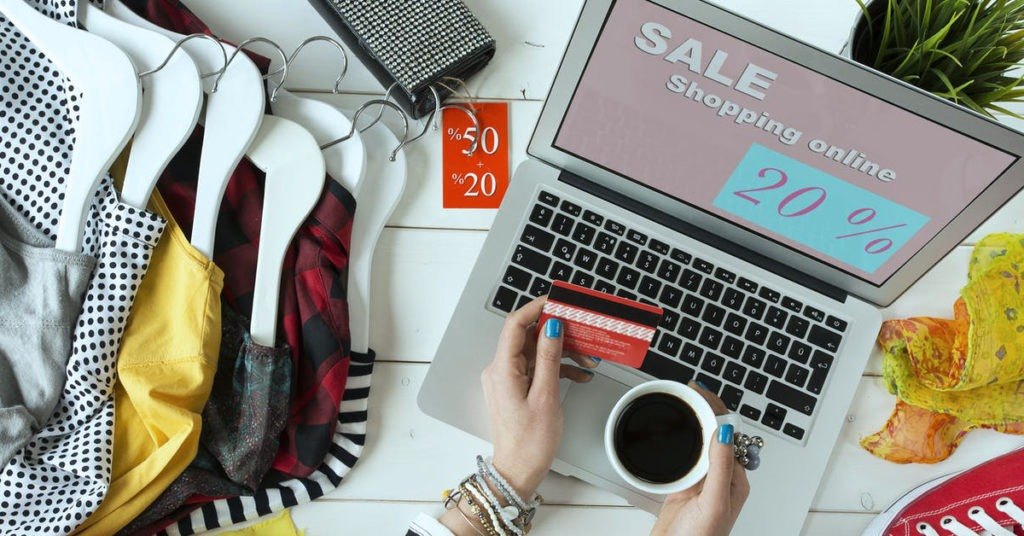IS ONLINE SHOPPING A MEDICAL DISEASE?

Introduction
Aside from double digits days like 7-7, the online shopping platforms have utilized salary days to make you shop. You will soon be pressing your favorite button “Add to Cart” if you are an avid fan of Shopee and Lazada. Virtual shopping as a new hobby amidst a pandemic seems counter-intuitive because there is a financial crisis all around. Still, we continue to shop like it is an addiction.
So, is online shopping a real medical disease?
The Term “Compulsive Buying Disorder”
Shopping addiction comes in different names. It can be called pathological buying, compulsive buying disorder, or compulsive buying behavior. This condition is characterized by the uncontrollable, impulsive, persistent, and excessive purchase of different products despite the harmful social, psychological, occupational, and financial consequences. However, the official record in DSM of being a shopaholic is still unsettled. One research shows that compulsive shopping disorder is often followed by anxiety, depression, and other ‘negative emotions’. People with this disorder often relieve themselves from these tensions by shopping. The research also added that people with this disorder have poor self-esteem, lower educational status, symptoms of OCD, and are more likely to be female.
The Shopping Habits of Filipinos
The social media giant, Facebook, recently conducted a trend survey in the Philippines to know what the online shoppers look onto in the online marketplace. Ninety-three percent of the respondents said that they highly consider both the price and convenience when purchasing a product. Filipino consumers, just like everybody else around the world, prefer the ease of access to products or services.
In a recent report of iPrice Group, the researchers found out that the Philippines experienced the highest spike in downloads of online shopping apps in the Southeast Asia region. Between the first and second quarters of 2020, there has been a 53% spike in app installations. The online shopping has also reached a total of 4.9 billion sessions. Since we were stuck at home most of the time, the study shows that Filipinos tend to not purchase fashion products. Instead, we became more inclined to gadgets or electronics.
Although there is a surge in e-commerce, local online sellers still find it difficult to thrive. This is due to the colonial mentality of Filipino consumers when it comes to choosing their products. It is hard to fully determine the deciding factor separating the two aside from their operating scale. It can be observed that the local and international goods have almost the same features. The latter is just more popular. Filipinos opt for products manufactured by multinational companies rather than picking the local-made goods.
The Pandemic Factor
Online shopping has arisen during the pandemic. Most people are staying at home when the pandemic starts and online shopping becomes a convenience. Also, virtual shopping has changed into a way to entertain ourselves by buying things that can make us happy or at least feel temporary comfort. This reliance on such behavior does not end well in the long run. On a positive note, online shopping can be a means to relieve stress but, on its downside, it can also hinder other good habits of fighting off the stress of this pandemic. It affects our mental health by becoming either eustress or distress. Prolonged exposure to imbalanced psychological effects of shopping online could bring discomfort to a person especially if it is mishandled. In such circumstances, it can even transform into addiction. To counteract this, it is advised to become aware of shopping habits and set limits to your invested time and budget in online shopping.
Conclusion
It is true that online shopping can save us from traveling and contracting COVID-19, there is a serious risk to our mental health, particularly addiction. At first, as an online shopper, you might not notice the slight ‘rewiring’ of your brain. It usually happens in subtle ways. Lastly, addiction to shopping can be a symptom of hidden psychological issue. If you suspect a problem deeper than online shopping, you have the option to talk to a psychologist at MyPocketdoctor. The MyPocketDoctor has been actively delivering both health information and telemedicine services. You can certainly enjoy these conveniences right at your fingertips by downloading the MyPocketDoctor APP and talking to our team of doctors about your health concerns. MyPocketDoctor can be contacted through its Facebook page and/or agent chat on the website www.MyPocketDoctor.com. You may check the Frequently Asked Questions (FAQs) through this website.
References:
www.pna.gov.ph
www.ncbi.nlm.nih.gov
